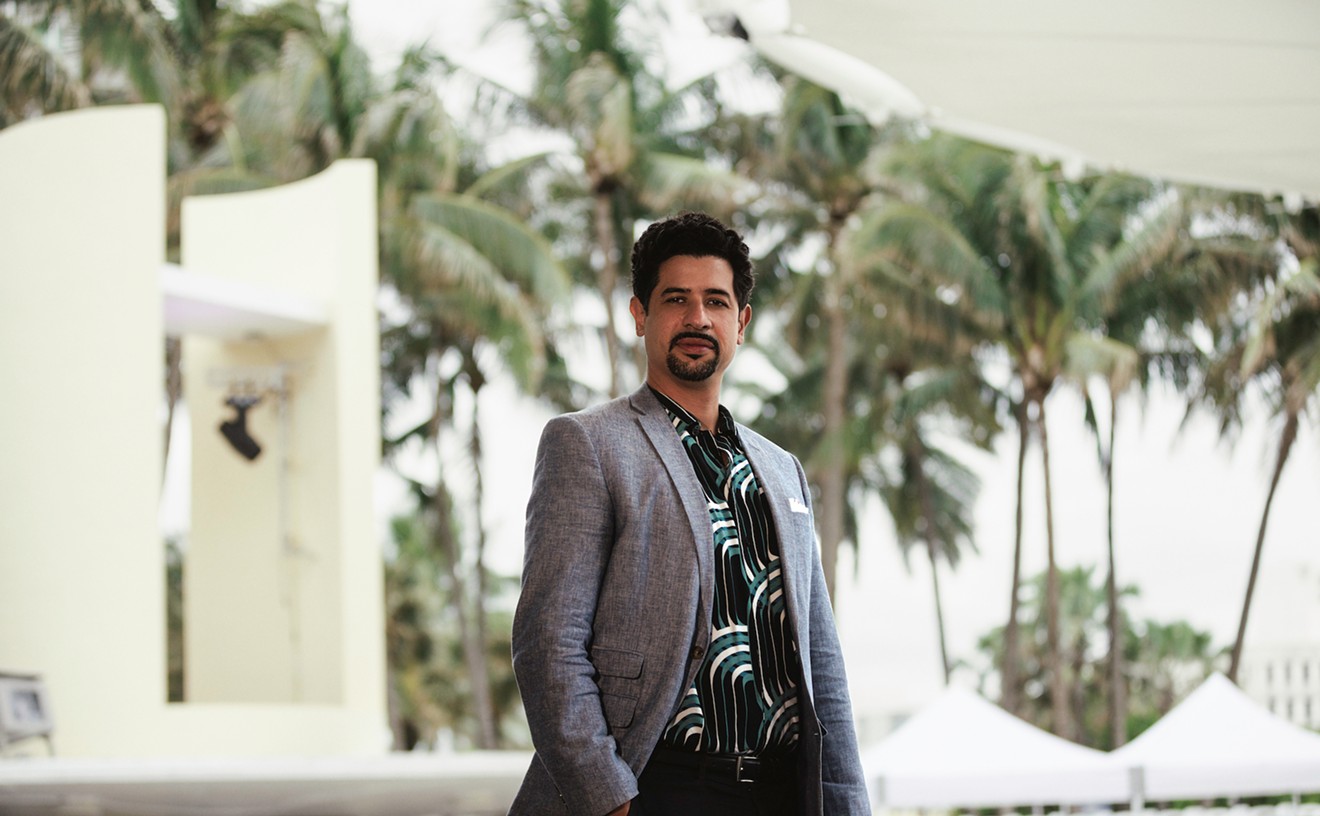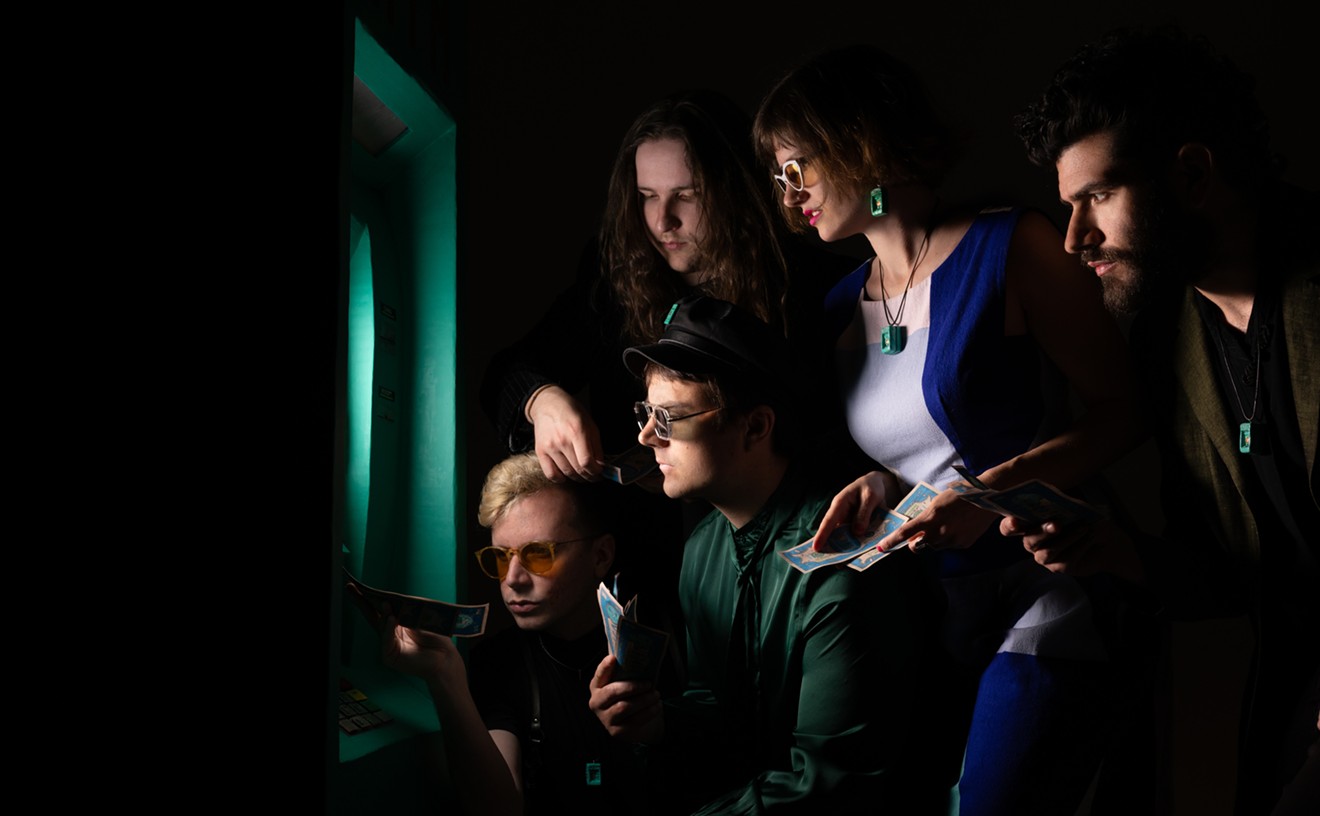The dance music underground might be rocking bleepy techno and dark-wave house from Europe, but the stuff that really moves the masses combines the synthetic strings of trance with the tough percussion of house. One look at the most popular DJs in the world, from Tiësto to Deadmau5 to Kaskade, points to the resonance of thick bass lines dipped in symphonic candy.
Miami's own Rivera has the sound down naturally. A native of San Juan, Puerto Rico, he taught himself how to DJ at age 13 and only a few years later was making dance music with drum machines, tape decks, and sequencers. He grew up on British New Wave and New York freestyle, and by the time he moved to the States, he had fortified his big-room sound.
Rivera became a go-to remixer (Madonna, Ricky Martin, Kylie Minogue) and top-tier superclub headliner who established his own Juicy Music label. He's a rare DJ who appeals to genres entrenched in separate corners of the dance floor — house and trance — with his muscular grooves and waifish vocals. Rivera's alchemy is apparent on artist album Closer to the Sun, released last fall on Ultra Records. Before his upcoming Labor Day Weekend gig poolside at the Gansevoort, New Times caught up with Rivera to ask him a few questions.
New Times: You grew up in Puerto Rico. Was there a house music culture when you were learning to spin and make beats, or were you dabbling in other music such as hip-hop?
Robbie Rivera: No, I was definitely into dance music from the start. On the radio, jocks would play a lot of European house tunes and British electronic music, like Depeche Mode. Other stations would play Latin freestyle music from New York City. It was a mixture. There was a lot of dance music over there. Put it this way: If you listened to dance music, you were cool. If you listened to Latin or merengue or salsa, you were not cool.
Were your parents accepting of your DJing?
Yeah, my parents were 100 percent supersupportive. They were the ones driving me to every club gig and every party when I was 15 years old, before I could drive. My dad would take me to the show, and I'd fuck up his car with all of my gear [laughs]. He'd go back home, and then he'd come pick me up again at 4 a.m. That was until I got my driver's license.
What was your impression of the Miami club scene when you were first exposed to it? How did it compare to what you experienced in terms of dance music in San Juan?
I got to Miami in 1992, and it was very different. They were into a lot of early-techno, punk, goth music, the Prodigy. I'd never heard that kind of music in Puerto Rico. That was really odd to me. I kind of got into it, though. When I was in school, I was not DJing parties or anything like that. I was doing music production in Fort Lauderdale, and they were very into freestyle like the people from New York City. I was not into that sound, but eventually it grew on me.
How has Latin music influenced your sound?
It's in my blood. When I started making music, I started making beats. When I make beats, it just naturally comes out, the Latin influence. I do listen to a lot of Latin music when I'm on my own as well.
Are you ever surprised at how much Latin flavor there is in superclub music, from the sounds of Danny Tenaglia to the flavors of Steve Lawler and even Loco Dice and the German producers? Does it make you proud at all?
Of course, man. Latin music has a groove, and Latin people just love to dance. It's in our soul. It's just natural, and everyone wants to have a groove on that tune. The Germans are going crazy with that [Latin-influenced] beat.
When producing your album, what kind of gear and software did you use? Was there anything that really helped you put a signature sound on the record?
I did all of it on Apple Logic because it's just easy for me, and I use a lot of sounds. There are two particular software applications I use a lot: one is the Predator software synth that has all of the current sounds of electronic dance music to manipulate. The other one is the Mini Moog software with all of the classic leads from the 1970s up through today. You get that dirty, electro sound as well.
You're with Ultra, perhaps the biggest, most powerful label in American dance music. Has that changed your life in terms of exposure, booking, and marketing? If so, how?
Well, I've had a few albums in the past with Ultra, and they do get a lot of love on radio. Their tunes get great promotion. Their albums also get a lot of good adds on iTunes. They're so popular they get you into more [retail] places, which is very important. Black Hole Recordings signed my album for the world from my label, Juicy Music. Black Hole is the home of Tiësto for the last six, seven years, so of course a lot of doors opened when Black Hole signed the album. Black Hole licensed the album in something like 16 countries, and their team is so professional, and they are really great to work with.
When you spin, how much of your music do you throw into a set?
I'd say my sets are 90 percent my own productions or music released on Juicy Music. If my set is over two hours long, I can go crazy with other people's music. But I want fans to have the Juicy experience, and I'm the only one who can do that.
How do you like openers to warm up for you?
That's a very good question. Opening DJs sometimes go crazy, playing hard, peak-time stuff — and I hate that. If you're going to warm up for a DJ, you should play warm-up music that's appropriate to the setting and set time. I prefer 126 beats per minute — nothing too hard, no big breakdowns. Warm-up music, that's what I like.










